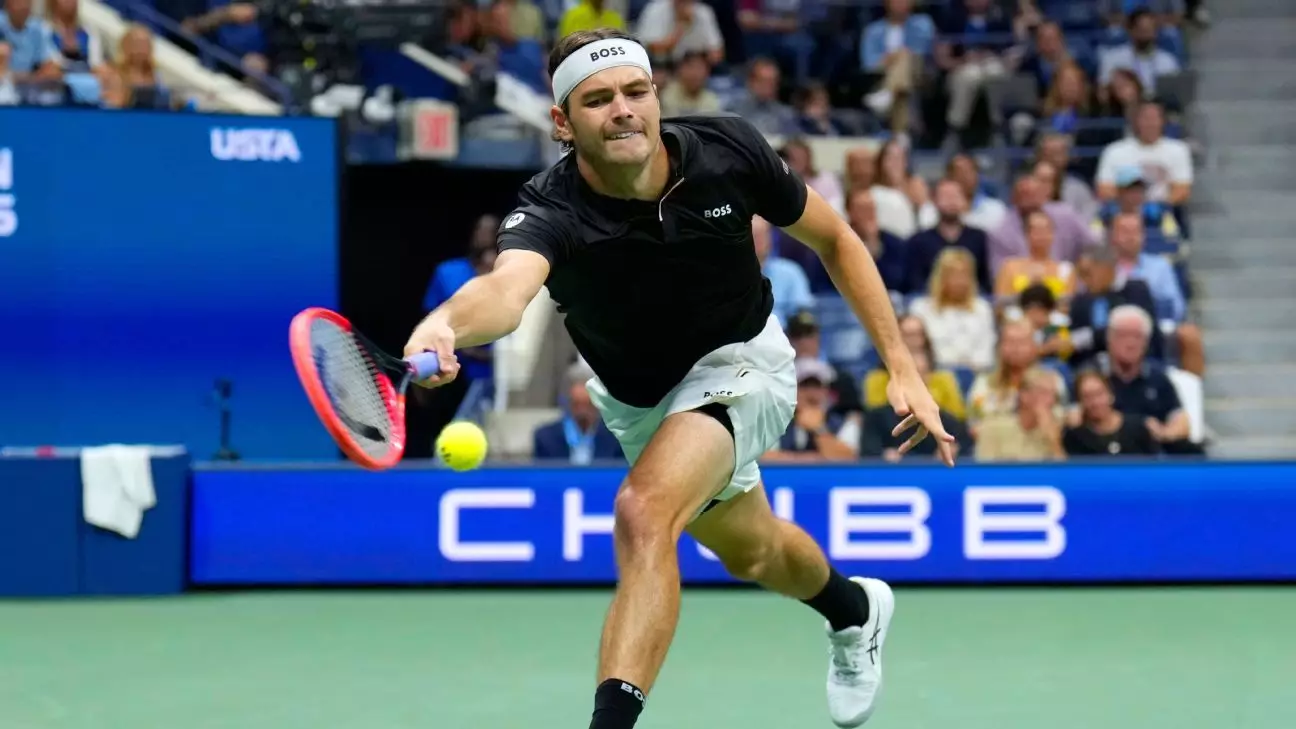In a recent move that has stirred debate amongst players and fans, the International Tennis Federation (ITF) announced it will permit off-court coaching starting January 1, 2025. This decision, which came during the governing body’s annual general meeting, aims to enhance the fairness and entertainment value of the sport. Off-court coaching has already been tested throughout the 2023 season across all Grand Slam events and the ATP and WTA tours, suggesting an evolving landscape in professional tennis.
Among the most vocal critics of this rule change is World No. 6 Taylor Fritz, who believes the introduction of off-court coaching could compromise the unique one-on-one dynamic that defines tennis. Taking to social media, Fritz articulated a common sentiment among purists: the essence of the sport lies in the individual’s strategic and mental fortitude. “Can we stop ruining the 1v1 mental/strategic aspect of the sport PLEASE,” he wrote in a post, highlighting that the tactical challenges presented in matches could be diminished by external guidance. This perspective raises larger questions about the essence of competition in tennis and whether such changes might dilute the sport’s core identity.
Former world No. 10 Denis Shapovalov echoed similar sentiments, describing the ITF’s decision as “sad.” He emphasized the solitary nature of tennis, asserting that part of its beauty lies in the players’ ability to navigate challenges without off-court intervention. Shapovalov’s remarks tap into the nostalgia many hold for traditional values in sports, suggesting that any deviation from the established norms could lead to an erosion of the game’s foundational principles.
Their apprehensions don’t just reflect individual viewpoints; they resonate with a broader audience who values the unique characteristics of tennis. The sport has thrived on the intense mental battles and strategic ingenuity displayed in matches, making each encounter a test of character and skill.
In defense of the decision, ITF senior executive director Stuart Miller pointed to extensive consultations with players, coaches, and umpires that preceded the ruling. Miller claimed that player feedback indicated a belief that off-court coaching would enhance both their development and the overall spectator experience. However, this raises pertinent questions regarding the representation of player voices in discussions that reshape the game. Are all players genuinely on board with such a significant shift, or does the vocal minority overshadow the silent majority?
While proponents argue that the coaching aspect could invigorate on-court performance and foster player growth, critics point out that these changes risk compromising the intellect and skill that have always been central to tennis.
As the sport prepares for this transformative approach to coaching, the implications remain significant. The line between individual prowess and external assistance will undoubtedly blur, shifting the competitive landscape. The increasing trend of modifying traditional rules raises essential conversations about integrity, competition, and the true essence of athletic achievement in tennis. As the countdown to 2025 begins, it remains to be seen how this will redefine the sport and how athletes adapt to this new paradigm.


Leave a Reply